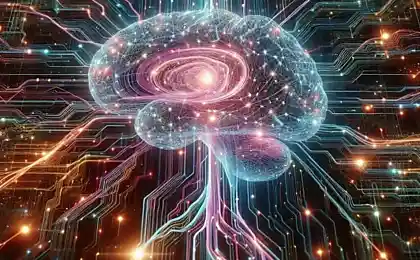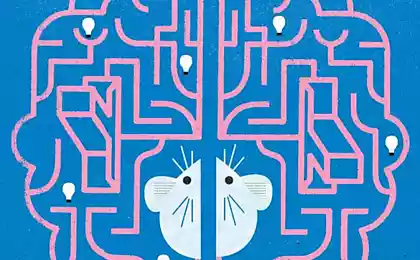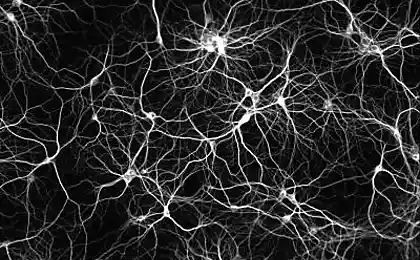236
8 Habits That Make Your Memory Worse

Imagine walking into a room and instantly forgetting why you came. Or lose the thread of conversation, unable to remember the name of the interlocutor. Familiar? Memory is not just a tool for storing memories, it is our guide to the world, the basis of learning and decision-making. But what if the habits we think are harmless slowly destroy that gift? In this article, we will reveal eight insidious habits that weaken your memory and tell you how to say goodbye to them to avoid distraction and forgetfulness.
1. Living in multitasking mode
Do you consider yourself a master of juggling cases? It's time to come down from heaven. Multitasking, contrary to myths, does not make us more productive. Research from Stanford University shows that switching between tasks reduces concentration and impairs the ability to remember information. Your brain simply does not have time to fix the data while you browse social networks, responding to a work letter.
What to do: Try the focusing method. Set aside 25 minutes for one task without distractions, then take a 5-minute break. This will strengthen your memory and increase efficiency.

2. Chronic sleep deprivation
Sleep is not a luxury, but a necessity. While you sleep, the brain sorts information, translating short-term memories into long-term ones. According to the National Institutes of Health, even one sleepless night can reduce cognitive abilities by 30%. Not surprisingly, after a nightly serial marathon, you can’t remember where you left your keys.
What to do: Go to bed at the same time, avoiding screens an hour before bedtime. 7-9 hours is your goal for a clear mind.
3. Love of fast food
Hamburgers and soda are not only enemies of the waist but also of memory. A diet rich in sugar and trans fats disrupts the hippocampus, a key area of the brain for memory. A study in the journal Neurology links poor diet to accelerated cognitive decline.
What to do: Add to the diet omega-3 (salmon, walnuts) and antioxidants (blackberries, spinach). Your brain will thank you.
4. Sedentary lifestyle
Motion is life, including for the brain. Physical activity stimulates the production of the BDNF protein, which supports neuroplasticity. Without it, memory fades like an old lantern. Sit all day? Prepare for flashbacks.
What to do: Start small: 30 minutes of walking or light exercise daily. It's easier than it looks and it works.
5. Excessive alcohol
A glass of wine won't hurt, but regularly overdoing the norm is a different story. Alcohol is toxic to neurons, especially in high doses, causing "alcohol dips." According to the WHO, this is one of the risk factors for dementia.
What to do: Limit to 1-2 servings a day if you drink, and alternate with water. Your brain will appreciate your moderation.
6. Life under stress
Stress is a silent memory killer. Constant anxiety increases levels of cortisol, which destroys connections in the hippocampus. Remember: in a panic, you can hardly connect two words, let alone remember a to-do list.
What to do: Master breathing exercises: 4 seconds inhale, 4 seconds exhale. Try meditation – 10 minutes a day can work wonders.

7. Rejecting intellectual challenges
The brain likes to work. If you don’t give him tasks – from reading books to solving crossword puzzles – he falls asleep. Neuroplasticity requires stimuli, otherwise memory is weakened like an unused muscle.
What to do: Learn a new language, play chess, or just read. The main thing is to challenge your mind.
8. Loneliness as a habit
Humans are social creatures, and our brains thrive in communication. Harvard research suggests that social isolation increases the risk of cognitive decline. Lonely nights in front of TV? Memory suffers.
What to do: Call a friend, go to a club meeting. Communication is a charge for the brain.
The Road to Strong Memory
These habits are insidious: they are built into life imperceptibly, but their effect is noticeable. Good news? You can rewrite the script. Start with one step – turn off unnecessary notifications, go to bed on time or go for a walk. Your memory is a treasure, and it is worth preserving.
What about you? Which habits are you willing to let go of right now?
Glossary
hippocampus The part of the brain responsible for forming and storing memories.
Neuroplasticity The ability of the brain to adapt and create new neural connections.
Cognitive decline Decreased mental function, including memory and attention
BDNF A protein that supports the growth and survival of neurons, important for memory.
12 Reasons Why You Don’t Have to Prove to Anyone
How to distinguish intuition from anxiety when making important decisions























